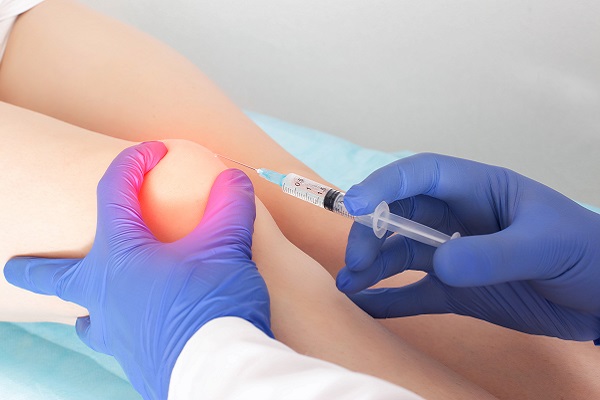How Is Hyaluronic Acid Injection Treatment Used To Address Knee Pain?

If you are experiencing knee pain, Hyaluronic Acid Injection Treatment is one of the numerous therapies available. Hyaluronic acid is a gel-like material found in the human body. It is a component of the synovial lining, which protects your joints. It aids in moisture retention and keeps your body lubricated.
Hyaluronic acid injection treatment for knee pain
Hyaluronic acid offers cushioning and lubrication to the knees and other joints. When extending or flexing the knee, the bones are covered and may move smoothly over each other. However, conditions such as osteoarthritis cause deterioration of the cartilage and synovial lining, resulting in inflammation and discomfort.
Inflammation and discomfort in the knees
One or more of the following characteristics of hyaluronic acid injections contributes to its effectiveness for treating knee pain:
- Lubrication: Hyaluronic acid's viscosity may offer greater lubrication and stress absorption in the knee joint in certain individuals. These actions may decrease joint friction, decreasing pain and stiffness while also avoiding cartilage and bone loss
- Anti-inflammatory properties: Hyaluronic acid injections have been shown in studies to have anti-inflammatory benefits in the knee, such as reducing pain, inflammation, and edema (swelling)
- Pain-relieving properties: Hyaluronic acid molecules create a barrier around nerve endings in certain individuals, blocking pain impulses from reaching the brain. These chemicals also bind to pain-signaling cells in the knee. Knee pain may be reduced as a result of these mechanisms
The applications of hyaluronic acid injection treatment
Injections of hyaluronic acid will not treat all painful knee problems. They may, however, be very helpful in the treatment of osteoarthritis. The hyaluronic acid injections can rejuvenate the knee lining, offering pain relief that can last up to six months. However, the therapy is not as helpful with other painful knee problems like ligament tears, tendonitis, or sprains. The hyaluronic acid injections can only restore joint linings, and they cannot repair the tissues.
What is the hyaluronic acid injection treatment process?
The procedure starts by doing a comprehensive consultation and examination to determine the origin of the knee pain to provide the most effective therapy. If the doctor believes hyaluronic acid injections would help patients with osteoarthritis alleviate their pain, they can complete it in a single visit.
The doctor will clean the area around the knee and may administer a topical anesthetic at the injection time. They may do a joint aspiration to remove part of the excess fluid if the patient has significant swelling. Afterward, they will inject hyaluronic acid into your knee using an x-ray to guide the needle.
Ready to leave knee pain behind?
Hyaluronic acid injection treatment can affect people in different ways. The inflammation and discomfort in your knees may go away nearly immediately, or they may take a few weeks to go away. You will soon notice that you can move more freely and without discomfort. If you have knee pain that is interfering with your life and you want to see whether hyaluronic acid injection treatment may help, contact our clinic today to book an appointment.
Get more information here: https://sjrm-tn.com or call Spine & Joint Regenerative Medicine at (423) 424-1529
Check out what others are saying about our services on Yelp: Hyaluronic Acid Injection Treatment in Ooltewah, TN.
Related Posts
Degenerative joint disease is a common issue among seniors, active adults, and some younger individuals with prior injuries. It gradually deteriorates the cartilage that cushions joints, leading to pain, stiffness, and reduced mobility. Fortunately, treatment aims to keep patients active and independent. Understanding the development, diagnosis, and treatment options for this condition can help make…
Chronic pain treatment involves a comprehensive process that begins with an initial evaluation and continues through long-term recovery. Many individuals pursue chronic pain treatment to improve function and manage symptoms, allowing them to achieve a greater quality of life. A thoughtful and structured approach from the start supports steady progress over time.The first appointment sets…
Regenerative medicine represents a shift in how chiropractors approach injury care and pain management. Rather than focusing only on symptom relief, these innovative therapies rebuild tissue strength and joint mobility with the help of the body’s natural healing processes. When combined with chiropractic adjustments, regenerative medicine provides a clear path to recovery and performance.At its…
You have probably heard about sports medicine, but how much do you know about this branch of medical care? If you are an avid athlete, chances are good that you will one day need help from a professional in this industry. You do not need to be a high-level athlete to visit a therapist or…
